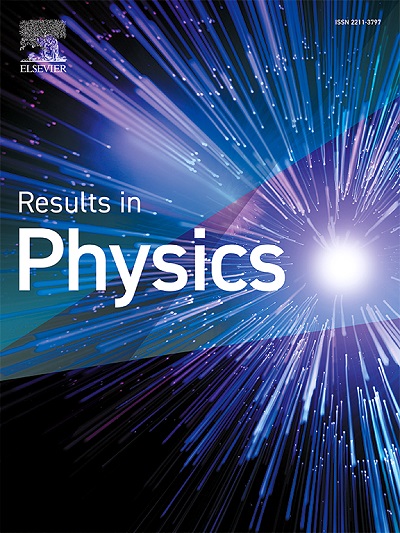脆弱系统:导致量子理论的隐变量贝叶斯框架
IF 4.4
2区 物理与天体物理
Q2 MATERIALS SCIENCE, MULTIDISCIPLINARY
引用次数: 0
摘要
从能够解释非经典相关性、测量的非交换性和其他独特的反直觉现象的新描述的角度来理解量子理论,仍然是我们描述物理现象的基础上的一个挑战。在一些建议中,量子态本质上是贝叶斯框架下的知识状态的想法是一个有趣的可能性,因为它具有解释力。在这项工作中,量子理论的形式主义来源于贝叶斯概率论对“脆弱”系统的应用,即被测量扰动的系统。复希尔伯特空间、非交换算子和期望的迹规则都是利用线性代数来求解包含经典隐变量概率的积分方程时自然产生的。讨论了该理论的非脆弱极限,即所有测量值都是可交换的,该理论与经典统计理论类似。本文章由计算机程序翻译,如有差异,请以英文原文为准。
Fragile systems: A hidden-variable Bayesian framework leading to quantum theory
An understanding of quantum theory in terms of new, underlying descriptions capable of explaining the existence of non-classical correlations, non-commutativity of measurements and other unique and counter-intuitive phenomena remains still a challenge at the foundations of our description of physical phenomena. Among some proposals, the idea that quantum states are essentially states of knowledge in a Bayesian framework is an intriguing possibility due to its explanatory power. In this work, the formalism of quantum theory is derived from the application of Bayesian probability theory to “fragile” systems, that is, systems that are perturbed by the measurement. Complex Hilbert spaces, non-commuting operators and the trace rule for expectations all arise naturally from the use of linear algebra to solve integral equations involving classical probabilities over hidden variables. The non-fragile limit of the theory, where all measurements are commutative and the theory becomes analogous to classical statistical theory is discussed as well.
求助全文
通过发布文献求助,成功后即可免费获取论文全文。
去求助
来源期刊

Results in Physics
MATERIALS SCIENCE, MULTIDISCIPLINARYPHYSIC-PHYSICS, MULTIDISCIPLINARY
CiteScore
8.70
自引率
9.40%
发文量
754
审稿时长
50 days
期刊介绍:
Results in Physics is an open access journal offering authors the opportunity to publish in all fundamental and interdisciplinary areas of physics, materials science, and applied physics. Papers of a theoretical, computational, and experimental nature are all welcome. Results in Physics accepts papers that are scientifically sound, technically correct and provide valuable new knowledge to the physics community. Topics such as three-dimensional flow and magnetohydrodynamics are not within the scope of Results in Physics.
Results in Physics welcomes three types of papers:
1. Full research papers
2. Microarticles: very short papers, no longer than two pages. They may consist of a single, but well-described piece of information, such as:
- Data and/or a plot plus a description
- Description of a new method or instrumentation
- Negative results
- Concept or design study
3. Letters to the Editor: Letters discussing a recent article published in Results in Physics are welcome. These are objective, constructive, or educational critiques of papers published in Results in Physics. Accepted letters will be sent to the author of the original paper for a response. Each letter and response is published together. Letters should be received within 8 weeks of the article''s publication. They should not exceed 750 words of text and 10 references.
 求助内容:
求助内容: 应助结果提醒方式:
应助结果提醒方式:


